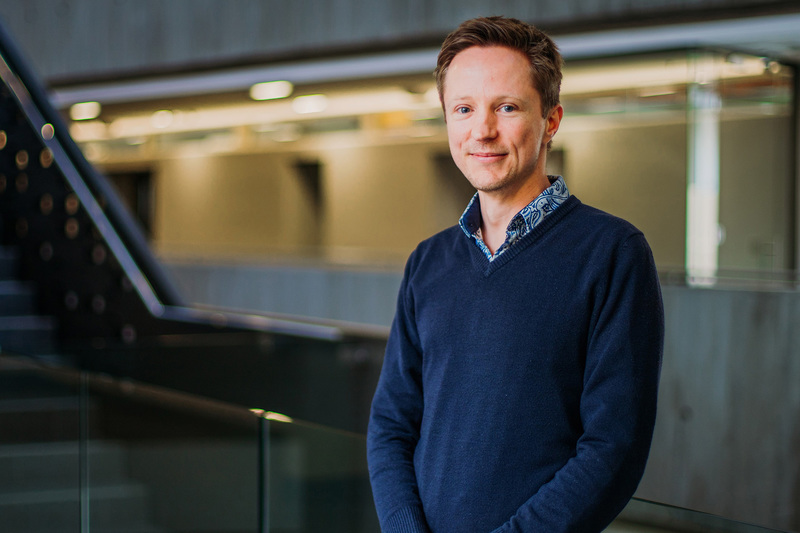UCT’s newest Next Einstein Forum Fellow
12 August 2019 | Story Helen Swingler. Photo Candice Lowin. Read time 4 min.
Dr Dyllon Randall’s selection as a Next Einstein Forum (NEF) Fellow will provide opportunities to showcase his work and bring African science to the world stage.
The senior lecturer in the University of Cape Town’s (UCT) Department of Civil Engineering is among 25 fellows (all under the age of 42) elected from across Africa. The announcement was made on 5 August in Kigale, Rwanda.
This is the third cohort of NEF laureates. The initiative aims to build the community of African scientists, leaders whose research and innovations will help address Africaʼs and the world’s most urgent challenges.
Flagship programme
The NEF Fellowship is a flagship programme of the Next Einstein Forum, which is an initiative of the African Institute for Mathematical Sciences (AIMS), in partnership with the Robert Bosch Stiftung.
A chemical engineer by training, Randall and his postgraduate students have pioneered two world-firsts in sustainable resource recovery systems: a waterless urinal that produces fertiliser and a bio-brick grown from human urine.
Fellows are chosen for their strong scientific record and potential for leadership. As such, the fellowship will support Randall and provide a platform to grow his visibility and showcase his work.
It will also create opportunities for him to interact with and receive mentorship from leading scientists, policymakers, industry representatives, civil society leaders and other “exceptional young African scientists”.
An NEF announcement reads: “[The Fellows] are selected by an international scientific programme committee, through a rigorous process that takes into account academic and scientific merit, the number of publications, obtaining patents, awards and proof of independent fundraising for research.
“This award will help me inspire young Africans who are interested in science and engineering.”
“The laureates must also demonstrate the relevance of their research or innovations to the major issues of humanity, as well as a desire to promote the scientific profile of Africa and to inspire future generations of scientific leaders.”
International platform
Randall will have a chance to attend and present his work on resource recovery from wastewaters at an NEF Fellow Spotlight Session at the exclusive NEF Global Gathering in March next year. Guests will include heads of state, Nobel Prize laureates and top scientists and industry representatives.
The focus of the NEF programme is to nurture a community of African scientists, through annual gatherings to discuss the impact of their work and travel to network in different African countries as part of the NEF Fellows Tour.
The fellowship also comes with significant public and media exposure and Randall will be expected to contribute opinion pieces and work with journalists on interviews to increase his and the NEF’s visibility.
“This award will help me inspire young Africans who are interested in science and engineering,” said Randall.
“It will also help create paradigm shifts in how we view ‘waste’, instead focusing on sustainable recycling initiatives. Africa has a very bright future and I am proud to be part this incredible journey.”
 This work is licensed under a Creative Commons Attribution-NoDerivatives 4.0 International License.
This work is licensed under a Creative Commons Attribution-NoDerivatives 4.0 International License.
Please view the republishing articles page for more information.
Research & innovation





































